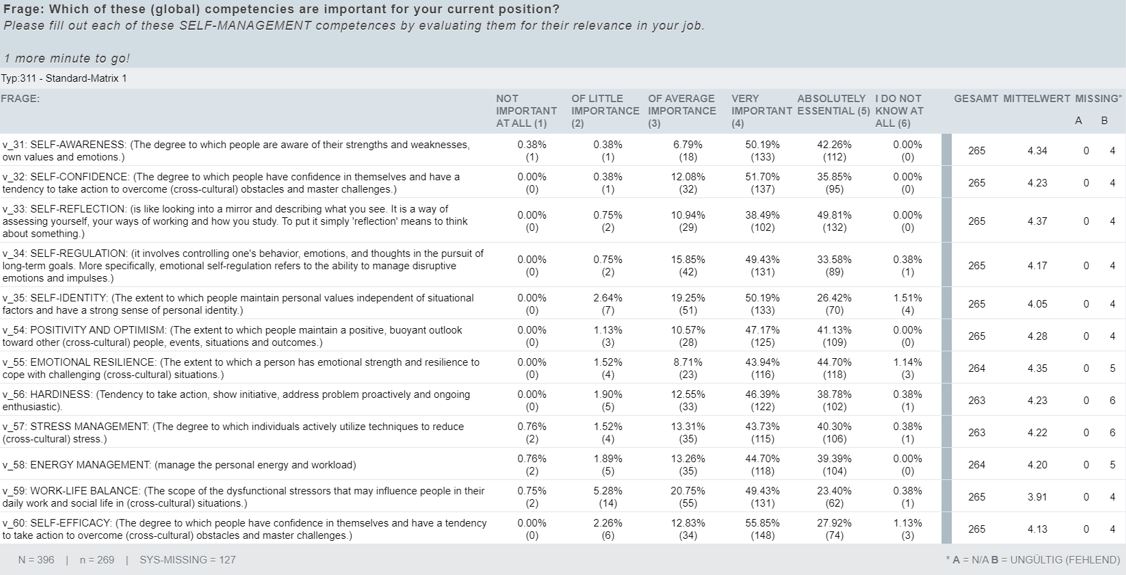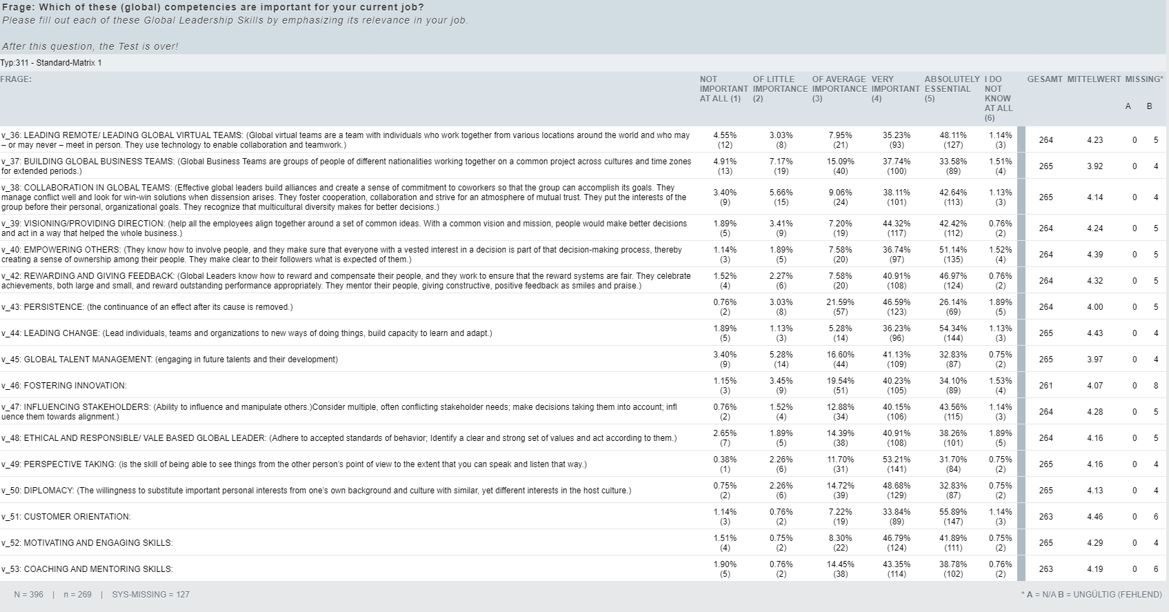{:en}
Global Mindset in
Human Resource Management
Global Mindset and Human Resource Management
Human resource management and the HR function are in a “global-local dilemma”. Due to the internationalization process of multinational companies and small and medium-sized enterprises (SMEs), the complexity of HR tasks is increasing significantly. These are, for example, more HR activities so that HR has to take a broader perspective, that the HR representatives have to be more involved in the private life of the employees, they have to treat different employees like expatriates, inpatriates and organize the repatriation of employees. The headquarters (HQ) must decide which people are selected for an international assignment. The personnel departments take care of the nationals of the mother country, the host country and the nationals of the third country. This can be seen in the next figure.

The headquarters (HQ) have to organize further HR tasks internally, such as: • International taxation; • International relocation and orientation; • administrative services for expatriates; • Relations between host and government; • Language translation services. • Performance management • Personnel planning. • International recruitment (recruitment, selection, placement). • Education and development • Compensation (remuneration) and benefits. • Industrial relationships • Assessments • Transformation and change management In all of these HR tasks, HR employees have to deal with the global-local conflict, which means that some HR aspects can be standardized and globally integrated and some other specific aspects of HR tasks have to be adapted locally. Some of the factors driving standardization in the HR department are:
• pursuing a multinational or transnational corporate strategy
• supported by an appropriate organizational structure; that is
• reinforced by a global corporate culture and corporate DNA.
• Global core values, vision, mission, standards
• Diversity concepts
• Global IT platform, learning tools, knowledge management
• Career programs and development, succession planning
Some factors in the HR department that could drive localization are as follows:
• The cultural and institutional Environment and the characteristics of the local unit itself.
• On-site training
• Language courses
• Educational differences and education in general
• Recruitment problems
• Legal issues
• Coaching and mentoring, cultural awareness training

Put simply, there should be a balance between global standardization and localization of human resource management. Therefore, the coordination, communication and control process within these contradicting forces must be harmonized between the head office and the subsidiaries.
Global Mindset in Human Resource Management
Survey Result









Previous
Next
Top 10 Global Mindset Competencies in Global Human Resources 1. Building Trust (67,42%)2. Integrity (64,09%)3. Willingness to understand others (62,31%)4. Customer Orientation (55,89%)5. Leading Change (54,34%)6. Cognitive Complexity (53,73%)7. Learning Agility (52,61%)8. Complex Problem-Solving Skills (52,55%)9. Acceptance/Respectfulness/Tolerance of others (51.49%)10. Emotional Intelligence (51.32%)
We customize your transformational learning journey for a successful global career.
For the Following (Global) HR Positions we organize a transformational learning journey of Global Mindset Competencies Development for the most relevant Top 10 Positions.
These are as follows:
- CHRO HR1
- Director HR HR2
- Global HR Business Partner HR3
- Head of Global HR HR4
- Executive VP HR HR5
- VP HR HR6
- Head of Global Learning HR7
- Head of Global Development HR8
- Head of Global Training HR9
- Head of Vocational Training HR10
- Global Mobility Manager HR11
- Senior Export Human Resource Development HR12
- HR Business Partner HR13
- HR Development Specialist HR14
- HR IT HR15
- Head of People HR16
Global HR Competency Model
15. 07.2021
Please contact us for more information.
We are here to help you.
Gmindset
Global Mindset &
Global Leadership
HOME
GLOBAL MINDSET
UNSER ANGEBOT
DIENSTLEISTUNGEN
ÜBER UNS
PUBLIKATIONEN
Newsletter Abonnement
© Dr. Jörg Hruby
Linkedin
Xing
Facebook
Book
{:}{:de}
Global Mindset in
Human Resource Management
Global Mindset and Human Resource Management
Human resource management and the HR function are in a “global-local dilemma”. Due to the internationalization process of multinational companies and small and medium-sized enterprises (SMEs), the complexity of HR tasks is increasing significantly. These are, for example, more HR activities so that HR has to take a broader perspective, that the HR representatives have to be more involved in the private life of the employees, they have to treat different employees like expatriates, inpatriates and organize the repatriation of employees. The headquarters (HQ) must decide which people are selected for an international assignment. The personnel departments take care of the nationals of the mother country, the host country and the nationals of the third country. This can be seen in the next figure.

The headquarters (HQ) have to organize further HR tasks internally, such as: • International taxation; • International relocation and orientation; • administrative services for expatriates; • Relations between host and government; • Language translation services. • Performance management • Personnel planning. • International recruitment (recruitment, selection, placement). • Education and development • Compensation (remuneration) and benefits. • Industrial relationships • Assessments • Transformation and change management In all of these HR tasks, HR employees have to deal with the global-local conflict, which means that some HR aspects can be standardized and globally integrated and some other specific aspects of HR tasks have to be adapted locally. Some of the factors driving standardization in the HR department are:
• pursuing a multinational or transnational corporate strategy
• supported by an appropriate organizational structure; that is
• reinforced by a global corporate culture and corporate DNA.
• Global core values, vision, mission, standards
• Diversity concepts
• Global IT platform, learning tools, knowledge management
• Career programs and development, succession planning
Some factors in the HR department that could drive localization are as follows:
• The cultural and institutional Environment and the characteristics of the local unit itself.
• On-site training
• Language courses
• Educational differences and education in general
• Recruitment problems
• Legal issues
• Coaching and mentoring, cultural awareness training

Put simply, there should be a balance between global standardization and localization of human resource management. Therefore, the coordination, communication and control process within these contradicting forces must be harmonized between the head office and the subsidiaries.
Global Mindset in Human Resource Management
Survey Result









Previous
Next
Top 10 Global Mindset Competencies in Global Human Resources 1. Building Trust (67,42%)2. Integrity (64,09%)3. Willingness to understand others (62,31%)4. Customer Orientation (55,89%)5. Leading Change (54,34%)6. Cognitive Complexity (53,73%)7. Learning Agility (52,61%)8. Complex Problem-Solving Skills (52,55%)9. Acceptance/Respectfulness/Tolerance of others (51.49%)10. Emotional Intelligence (51.32%)
We customize your transformational learning journey for a successful global career.
For the Following (Global) HR Positions we organize a transformational learning journey of Global Mindset Competencies Development for the most relevant Top 10 Positions.
These are as follows:
- CHRO HR1
- Director HR HR2
- Global HR Business Partner HR3
- Head of Global HR HR4
- Executive VP HR HR5
- VP HR HR6
- Head of Global Learning HR7
- Head of Global Development HR8
- Head of Global Training HR9
- Head of Vocational Training HR10
- Global Mobility Manager HR11
- Senior Export Human Resource Development HR12
- HR Business Partner HR13
- HR Development Specialist HR14
- HR IT HR15
- Head of People HR16
Global HR Competency Model
15. 07.2021
Please contact us for more information.
We are here to help you.
Gmindset
Global Mindset &
Global Leadership
HOME
GLOBAL MINDSET
UNSER ANGEBOT
DIENSTLEISTUNGEN
ÜBER UNS
PUBLIKATIONEN
Newsletter Abonnement
© Dr. Jörg Hruby